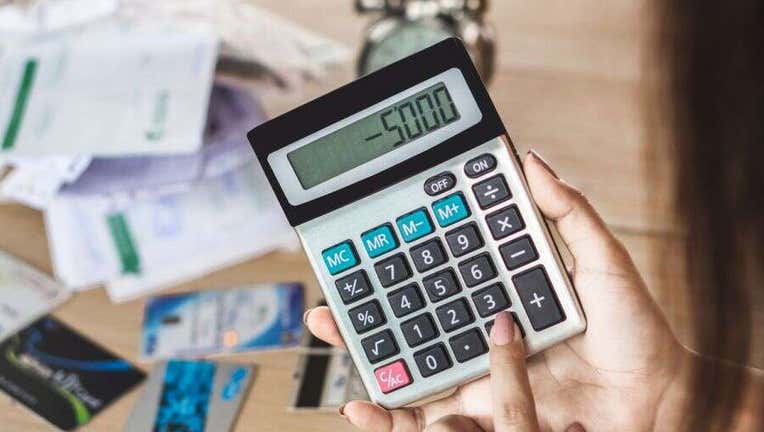How to ask for a credit balance refund

Do you need a credit balance refund for a negative credit card balance? Here's what you need to know about getting your money back from your credit card issuer.(iStock)
Paying for purchases on credit cards enables you to score great rewards and sometimes pay off purchases over time with no interest by using a 0% APR credit card. However, if you pay for goods or services with a credit card and then get refunded for them, the money is generally put back on your card.
Usually, this isn't a problem because the refund you get just reduces the balance you owe. Sometimes, however, a refund ends up coming after your balance has already been paid off — especially if you tend to pay your bill in full every month. When this happens, you could end up with a negative balance on your credit card. And this is happening to more Americans than ever as coronavirus leads to the cancellation of vacations, events, or other big-ticket items.
If you find yourself in this situation, it's important to understand what to do to get back the money your card issuer owes you.
What is a negative balance on a credit card and how does it occur?
A negative balance can appear on your credit card any time you get a refund for more than you currently owe.
Say you paid $5,000 for a vacation a few months ago and paid off your credit card in full last month. Then, afterward, perhaps you made a few small charges totaling $500 when you get a $5,000 refund for the vacation you can't take. After the refund is processed, you'll have a negative balance of $4,500. Your card issuer will owe you money.
WILL A NEGATIVE BALANCE ON A CREDIT CARD HURT MY SCORE?
You could also end up with a negative balance if you make an overpayment -- paying more than is due when your credit card statements come -- or if you're refunded fees after you've already paid off your bill.
The good news is, a negative balance won't affect your credit or your ability to apply for new cards. If you're looking to apply for a new credit card, make sure you check out Credible's interactive tools to find the right card for you.
If you have a negative balance, creditors will simply report that you have a $0 balance. But your money will be tied up. And if you aren't using your credit card heavily or you got a big refund, it could take a long time before you charge enough to get back to $0.
Why should you request a credit balance refund?
Requesting a credit balance refund makes sense if you don't want your money tied up on your card.
PROTECT YOUR CREDIT SCORE DURING CORONAVIRUS CRISIS — 5 THINGS YOU SHOULD DO RIGHT NOW
You may need the money for things that you can't put on your card, such as rent. Or you may have other cards you'd prefer to use and don't want to be forced to spend with one just to get back to $0. This could happen if you put an expensive trip on a travel card that you use only or trips because it doesn't provide good rewards for other spending. You may not be using that card for a long time if you aren't traveling due to coronavirus so having your money tied up on it for months wouldn't make sense.
HOW TO CHOOSE YOUR SECOND CREDIT CARD
How can I request a credit balance refund?
Credit card companies can refund any money they owe you when you have a negative balance. Usually, you can get the money sent via check or money order or it can be directly deposited to your bank account. The specific process for getting your refund will depend on your cardmember agreement but often you're able to get your money back within just a few business days.
However, you'll have to make a formal request for a credit balance refund as your card issuer isn't just going to send you back the money without prompting. To make a request for your funds, give your card issuer a call and ask customer service what your options are. A phone request is typically sufficient and the representative you talk to should be able to get the ball rolling on processing your refund.
Are there other ways to handle a negative balance?
If you don't want to request a refund from your card issuer, you can just use the card until you've gotten back to $0. If the card issuer owes you $5,000, you'd simply have to make $5,000 in purchases. If you use the card often and will charge enough to get the money back within one or two billing cycles, it often makes sense to just do that rather than having to call and request the cash back and wait for it to come.
HOW FICO'S NEW CREDIT SCORE CHANGES WILL AFFECT YOU
You could also leave the negative balance on the card for later purchases so it serves as a type of forced savings. For example, if you plan to re-book your trip in the future and don't want to have to worry about saving up to pay for it, you could keep your $5,000 negative balance and then just charge the trip when the time comes.
What if a refund isn't enough?
If you carry a balance on your credit cards and you get a refund, the money that comes back to you will reduce the balance owed. But sometimes your refund isn't big enough to bring your balance down to $0. If you carry a balance, consolidating your credit card debt using a personal loan could potentially save you a fortune in interest costs. Visit Credible today to find out how much consolidating credit card debt could save you.

